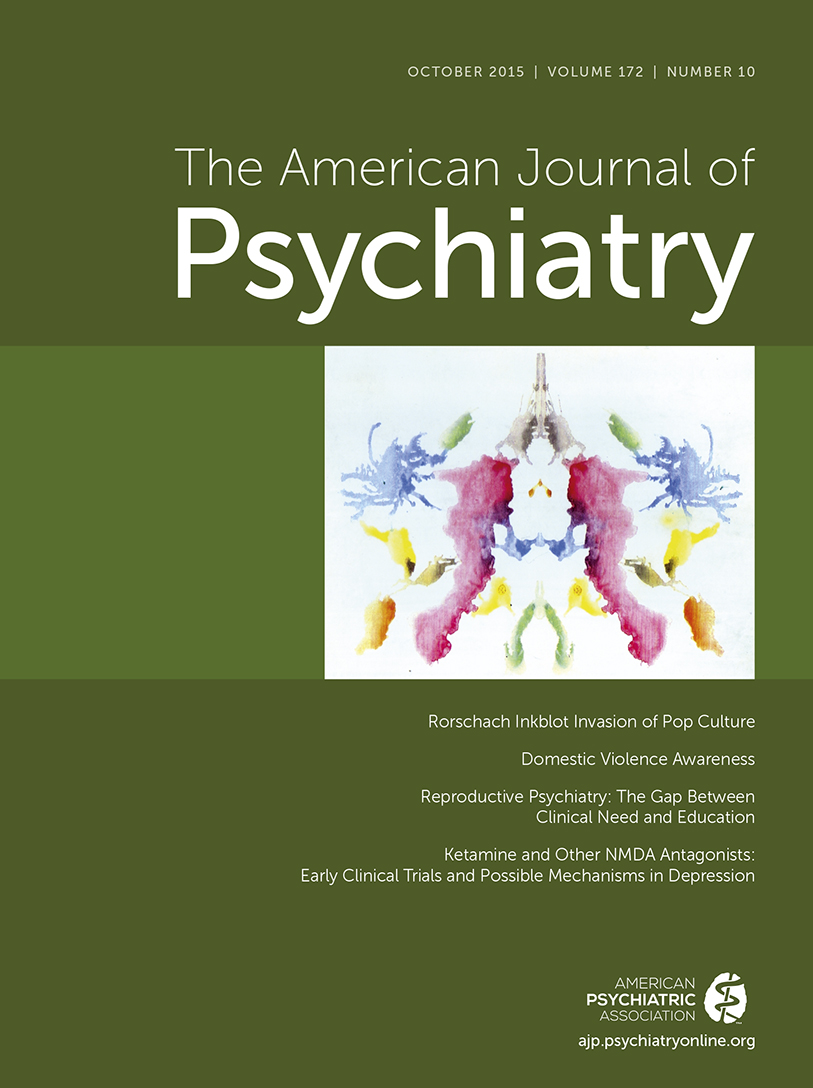Ketamine and Other NMDA Antagonists: Early Clinical Trials and Possible Mechanisms in Depression
Abstract
Objective:
The authors conducted a systematic review and meta-analysis of ketamine and other N-methyl-d-aspartate (NMDA) receptor antagonists in the treatment of major depression.
Method:
Searches of MEDLINE, PsycINFO, and other databases were conducted for placebo-controlled, double-blind, randomized clinical trials of NMDA antagonists in the treatment of depression. Primary outcomes were rates of treatment response and transient remission of symptoms. Secondary outcomes included change in depression symptom severity and the frequency and severity of dissociative and psychotomimetic effects. Results for each NMDA antagonist were combined in meta-analyses, reporting odds ratios for dichotomous outcomes and standardized mean differences for continuous outcomes.
Results:
Ketamine (seven trials encompassing 147 ketamine-treated participants) produced a rapid, yet transient, antidepressant effect, with odds ratios for response and transient remission of symptoms at 24 hours equaling 9.87 (4.37–22.29) and 14.47 (2.67–78.49), respectively, accompanied by brief psychotomimetic and dissociative effects. Ketamine augmentation of ECT (five trials encompassing 89 ketamine-treated participants) significantly reduced depressive symptoms following an initial treatment (Hedges’ g=0.933) but not at the conclusion of the ECT course. Other NMDA antagonists failed to consistently demonstrate efficacy; however, two partial agonists at the NMDA coagonist site, d-cycloserine and rapastinel, significantly reduced depressive symptoms without psychotomimetic or dissociative effects.
Conclusions:
The antidepressant efficacy of ketamine, and perhaps D-cycloserine and rapastinel, holds promise for future glutamate-modulating strategies; however, the ineffectiveness of other NMDA antagonists suggests that any forthcoming advances will depend on improving our understanding of ketamine’s mechanism of action. The fleeting nature of ketamine’s therapeutic benefit, coupled with its potential for abuse and neurotoxicity, suggest that its use in the clinical setting warrants caution.



